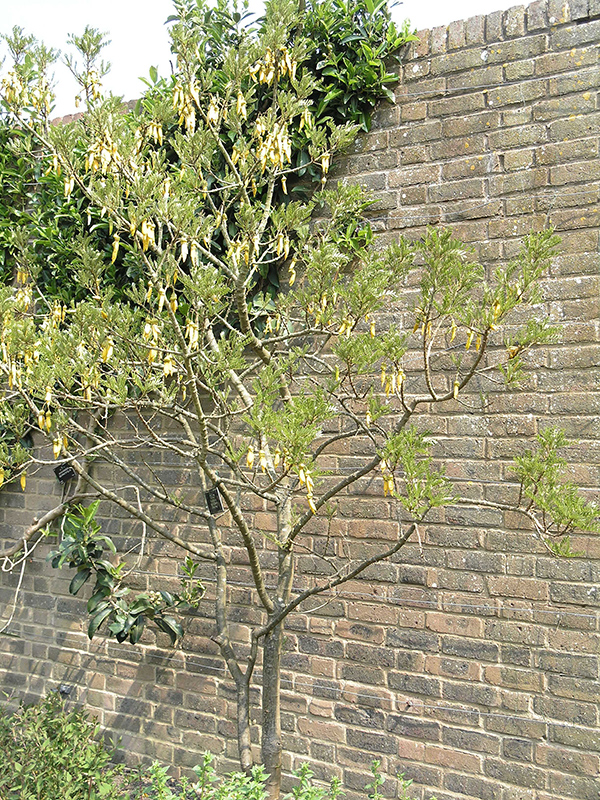
Woody > Sophora > Sophora tetraptera > Sophora tetraptera
Sophora tetraptera
Large Leaf Kowhai, New Zealand Laburnum
Origin: New Zealand.
Mike's
Opinion


"
A very unique plant, with magnificent yellow flowers, very commonly argued to be New Zealand’s national flower. The leaves of this tree are interestingly shaped, but be wary when handling this plant, especially the fruit, as it is toxic to humans.
Michael Pascoe, NDP., ODH., CLT., MSc. (Plant Conservation)
"
| Family |
| Fabaceae |
| Genus |
| Sophora |
| Species |
| tetraptera |
| Category |
| Woody |
| Type |
| Tree (evergreen) |
| Pronunciation |
| USDA Hardiness Zone |
| 9-10 |
| Canadian Hardiness Zone |
| Requires cool season protection under glass. |
| RHS Hardiness Zone |
| H4 - H2 |
| Temperature (°C) |
| (-4) to 4 |
| Temperature (°F) |
| 25 to 40 |
| Height |
| 8 m |
| Spread |
| 4 m |
Photographs
Description and Growing Information
Flowering Period
| General Description |
| A tall, frost hardy, woody perennial evergreen that flowers in the late spring until the end of summer. The flowers are papilionaceous shaped when in full bloom. The leaves are green in colour with an odd pinnate shape. |
| Landscape |
| A flowering accent plant in city parks and is suitable as a coastal or seaside tree. |
| Cultivation |
| Well-drained fairly fertile growing media with full sun. |
| Shape |
| Upright. |
| Growth |
| Slow |
| ID Characteristic |
| One of the most vital points when identifying Sophora tetraptera is its extremely distinctive fruit. The fruit looks like beans or peanuts and hang in clusters of 6 or more. |
| Habitat |
| Stream edges and lowlands of the North Island of New Zealand. |
| Bark/Stem Description |
| Bark is green to brown with a bumpy texture. |
| Leaf Description |
| A medium to dark green colour on top with a light green on the underside, odd pinnate in shape. |
| Flower Description |
| Large bright yellow flowers that bloom in sets of 5-10 racemes every mid-October lasting until mid-November, 3 -5 cm long. |
| Fruit Description |
| Very distinctive, almost segmented pods, appear after flowering each contain 6 or more smooth, hard yellow seeds. |
| Colour Description |
| A reddish brown colour, with vibrant yellow flowers, fruit and seeds. |
| Texture Description |
| The spread and shape of the leafs gives the tree a fuzzy textured look from a distance. The overall texture is medium. |
| Propagation |
| Seeds should be completely ripe when sowing, if the seeds have been stored for a prolonged period, leave them overnight or for about 12 hours in hot water. Sow into potting trays, preferably mid-winter in a greenhouse or a protected and heated building. Once seedlings are big enough to handle, carefully transplant into individual pots and continue to grow in individual pots for the next 2 years. Seedlings then can be planted into their final location in early summer. |
